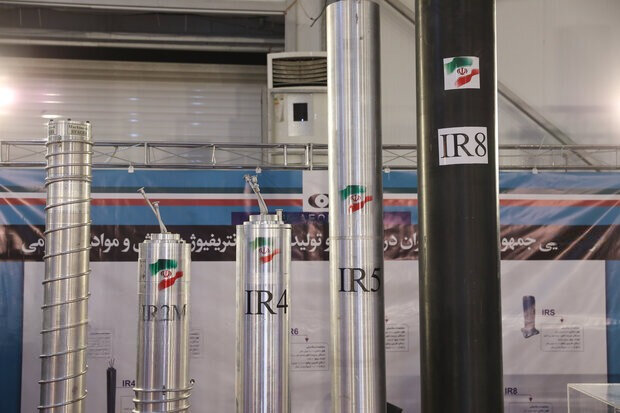Iran and its right to a civil nuclear program
Between international law and resistance to western disciplinary logic

MADRID – In the speech delivered on the 36th anniversary of the death of Imam Khomeini, founder of the Islamic Republic of Iran, the Leader of the Islamic Revolution, Ayatollah Seyyed Ali Khamenei, made Iran’s position regarding the recent U.S. nuclear proposals unmistakably clear.
“The (nuclear) proposal presented by the Americans is completely contrary to the ideals of the Islamic Revolution,” he declared firmly.
This statement came amid rising tensions following five rounds of indirect negotiations between Tehran and Washington, where uranium enrichment has become the primary point of contention. The United States insists on a “zero enrichment” demand from Iran, a proposal that is not only unfeasible from Iran’s perspective but also contradicts existing international law.
Iran has been a signatory to the Nuclear Non-Proliferation Treaty (NPT) since 1968, ratifying it in 1970, which explicitly recognizes its right to develop a nuclear program for peaceful purposes. This right is not a whim but an international legal obligation, an essential instrument for scientific and technological development, and for guaranteeing the population’s energy well-being. In a world where fossil fuels are depleting and energy transition has become a global priority, denying a country like Iran access to civil nuclear technologies is not only unjust but counterproductive.
Civil nuclear energy represents a vital and efficient alternative to traditional energy sources. Therefore, the capacity to produce nuclear fuel is understood by Iran as a basic necessity, a fundamental component of its sovereignty and political autonomy. In the words of Ayatollah Khamenei himself: “Even if we have a hundred nuclear power plants, if we do not have uranium enrichment, they are useless to us. Without enrichment, we would have to extend our hand to the United States, and they will impose several conditions on us.”
This message of firmness coincided with the formal presentation of a U.S. proposal through Oman, to which Iran has responded by announcing it will reply based on “its fundamental positions” and the “interests of its people.”
The international legal framework and Iran’s nuclear program
Iran’s nuclear program develops within a clearly defined regulatory framework. Iran complies with international law provisions, adhering to multilateral treaties and agreements such as the NPT, the Comprehensive Safeguards Agreement, and the Additional Protocol, all rigorously monitored by the International Atomic Energy Agency (IAEA).
The NPT rests on three fundamental pillars: the peaceful use of nuclear energy, non-proliferation of nuclear weapons, and gradual nuclear disarmament by the states that possess such arsenals. Iran, as a non-nuclear-weapon state, commits not to develop atomic weapons, while nuclear-armed states are obliged to cooperate in peaceful development and to advance disarmament.
After joining the NPT, each state negotiates a specific safeguards agreement with the IAEA, regulating inspections and controls over nuclear material. The Comprehensive Safeguards Agreement provides the basic framework, but the scope of activities and inspections varies depending on the size and nature of each country’s nuclear program.
In Iran’s case, the agreement requires reporting to the agency the quantity, type, and location of all nuclear material. IAEA supervision is continuous and detailed, disproving recurrent accusations that Iran conceals clandestine activities. Iran’s compliance with these safeguards has been repeatedly verified.
A critical perspective: the disciplinary logic
However, the dispute with the United States and its allies goes beyond mere legal compliance. Here lies a disciplinary logic analyzed by scholar Jasbir Puar in her work on power and global control. Puar explains how certain states are subjected to regimes of surveillance, sanction, and control to discipline them—not only politically or economically, but also symbolically—through the restriction of their sovereign rights.
This global discipline, applied selectively, aims to deny Iran an internationally recognized right under the guise of security. In reality, it is an attempt to control Iran’s sovereignty and maintain its energy and technological dependence. The “zero enrichment” demand does not respond to an objective threat but to a geopolitical interest designed to keep Iran subordinate.
From this viewpoint, Iran’s civil nuclear program becomes a symbol of resistance against an international system that rewards great powers and punishes those who challenge the hegemonic order. The U.S. insistence on limiting Iran’s enrichment rights reflects a power logic that operates through exclusion and selective criminalization.
This disciplinary logic, as Puar describes, creates a double standard that legitimizes some states to possess nuclear weapons while restricting others’ access to civilian nuclear technology, justifying interventions and sanctions in the name of global security.
Energy sovereignty as a matter of justice and development
Far from being a threat, civil nuclear energy is an essential resource for Iran’s sovereign and sustainable development. The country has the right to protect its population’s energy security and diversify its energy sources amid a global climate crisis and rising demand.
Denying Iran this right perpetuates an international inequality system that allows some countries to monopolize advanced technologies while others remain dependent and vulnerable. This is a crucial point to understanding the current diplomatic conflict.
Ultimately, Iran’s right to develop its civil nuclear program is supported by international law and basic principles of sovereignty and global justice. Attempts to curtail this right form part of a disciplinary strategy that seeks not only to contain Iran but to uphold a hierarchical and exclusionary international order.
The controversy surrounding Iran’s nuclear program cannot be understood solely from a security perspective. It requires considering international law, energy justice, and the resistance of a country defending its sovereignty against the pressures of a hegemonic power that applies different rules according to its interests.
Uranium enrichment, within the legal framework, is an inalienable right for Iran, and its defense is a legitimate claim against a global order that, as Jasbir Puar insightfully analyzes, operates through disciplinary logics that perpetuate inequality and subordination. Recognizing this right ultimately means acknowledging peoples’ capacity to decide their own development and well-being.
Leave a Comment